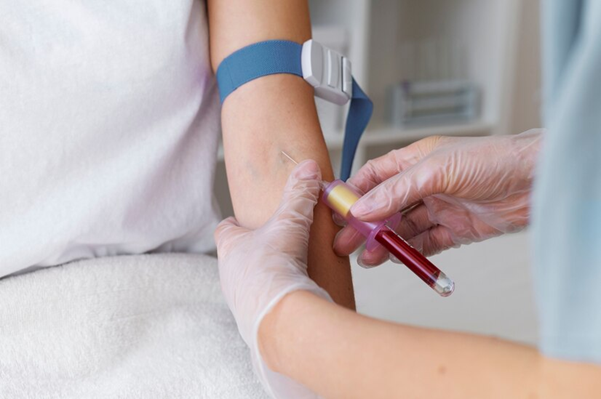Electrolyte Panel: Essential for Monitoring Your Health
- Home

What Is an Electrolyte Panel?
It is a blood test that measures the levels of key minerals in your blood, which are crucial for regulating various bodily functions.
These electrolytes—sodium, potassium, calcium, magnesium, chloride, bicarbonate, and phosphate—are essential for maintaining fluid balance, regulating blood pressure, and supporting nerve and muscle function.
Why Would I Need an Electrolyte Panel?
Your doctor may recommend an electrolyte panel to:
- Diagnose conditions causing electrolyte imbalances like dehydration, kidney disease, or diabetes.
- Monitor the effectiveness of treatments for electrolyte imbalances.
- Evaluate symptoms like fatigue, muscle weakness, or irregular heartbeats that imbalanced electrolytes could cause.
Electrolyte imbalances can result from conditions such as burns, dehydration, kidney disease, high blood pressure, and liver disease.
Certain medications, such as diuretics and antibiotics, may also affect electrolyte levels.
What Is Included in an Electrolyte Panel?
An electrolyte panel typically measures the following electrolytes in your blood:
- Sodium: Helps control fluid balance and supports nerve and muscle function.
- Potassium: Crucial for heart, nerve, and muscle function.
- Chloride: Maintains blood pressure and fluid balance.
- Bicarbonate: Helps maintain acid-base balance and transports carbon dioxide in the blood.
- Calcium: Essential for bones, muscles, and the nervous system.
- Magnesium: Supports nerve function, muscle function, and bone growth.
- Phosphate: Vital for healthy bones, teeth, and muscle function.
How Is the Test Performed?
An electrolyte panel requires a blood draw, usually from a vein in your arm. The procedure involves a few steps:
A healthcare professional or doctor will clean the area and insert a small needle into a vein to collect a blood sample.
You may feel a slight pinch during the process, which usually takes only a few minutes.
After the sample is collected, you’ll receive a bandage and may experience minor bruising or swelling at the site.
The results typically return within a few days, and your doctor will discuss the findings with you.
What Happens if the Results Show an Imbalance?
If the test results show an imbalance, your doctor will discuss the potential causes and treatment options.
Additional tests, such as an anion gap or blood gas tests, may be needed to determine the cause.
Conditions like kidney disease or lung issues can cause imbalances that need further investigation.
Take Charge of Your Health with Askam Healthcare
Electrolyte imbalances can affect your overall health, but early detection through an electrolyte panel can help prevent complications. Askam Healthcare offers comprehensive blood testing to monitor and manage your health.
Book your appointment today to get an electrolyte panel and stay on top of your health!

